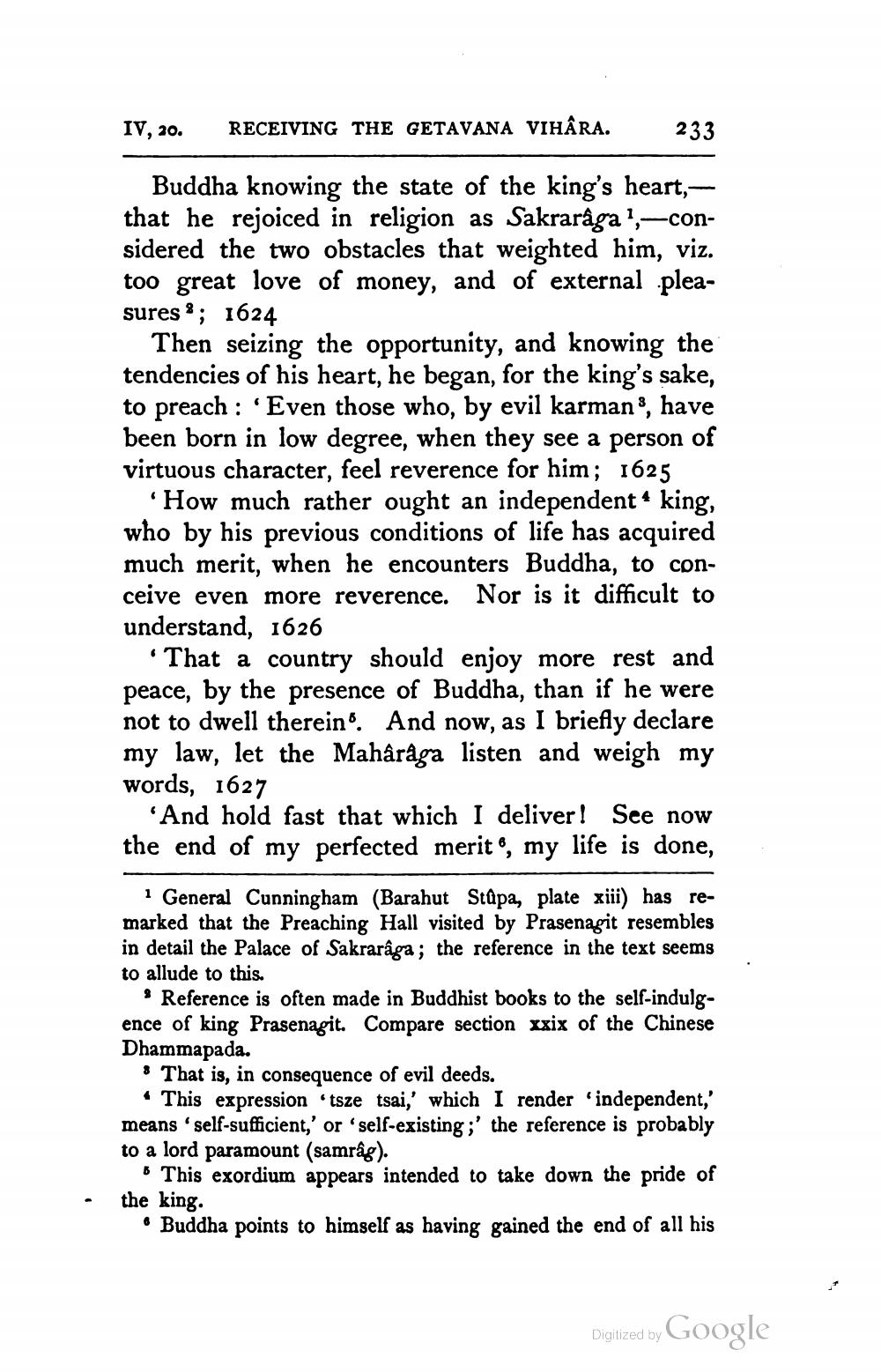________________
IV, 20.
RECEIVING THE GETAVANA VIHÂRA.
-
233
Buddha knowing the state of the king's heart, that he rejoiced in religion as Sakrarâga!,-considered the two obstacles that weighted him, viz. too great love of money, and of external .pleasures * ; 1624
Then seizing the opportunity, and knowing the tendencies of his heart, he began, for the king's sake, to preach : 'Even those who, by evil karman», have been born in low degree, when they see a person of virtuous character, feel reverence for him; 1625
How much rather ought an independent king, who by his previous conditions of life has acquired much merit, when he encounters Buddha, to conceive even more reverence. Nor is it difficult to understand, 1626
That a country should enjoy more rest and peace, by the presence of Buddha, than if he were not to dwell thereino. And now, as I briefly declare my law, let the Mahârâga listen and weigh my words, 1627
And hold fast that which I deliver! See now the end of my perfected merito, my life is done,
1 General Cunningham (Barahut Stūpa, plate xiii) has re
ked that the Preaching Hall visited by Prasenagit resembles in detail the Palace of Sakraraga; the reference in the text seems to allude to this.
% Reference is often made in Buddhist books to the self-indulgence of king Prasenagit. Compare section xxix of the Chinese Dhammapada.
* That is, in consequence of evil deeds.
• This expression 'tsze tsai,' which I render 'independent,' means 'self-sufficient,' or 'self-existing ;' the reference is probably to a lord paramount (samråg).
• This exordium appears intended to take down the pride of the king
* Buddha points to himself as having gained the end of all his
Digitized by Google




